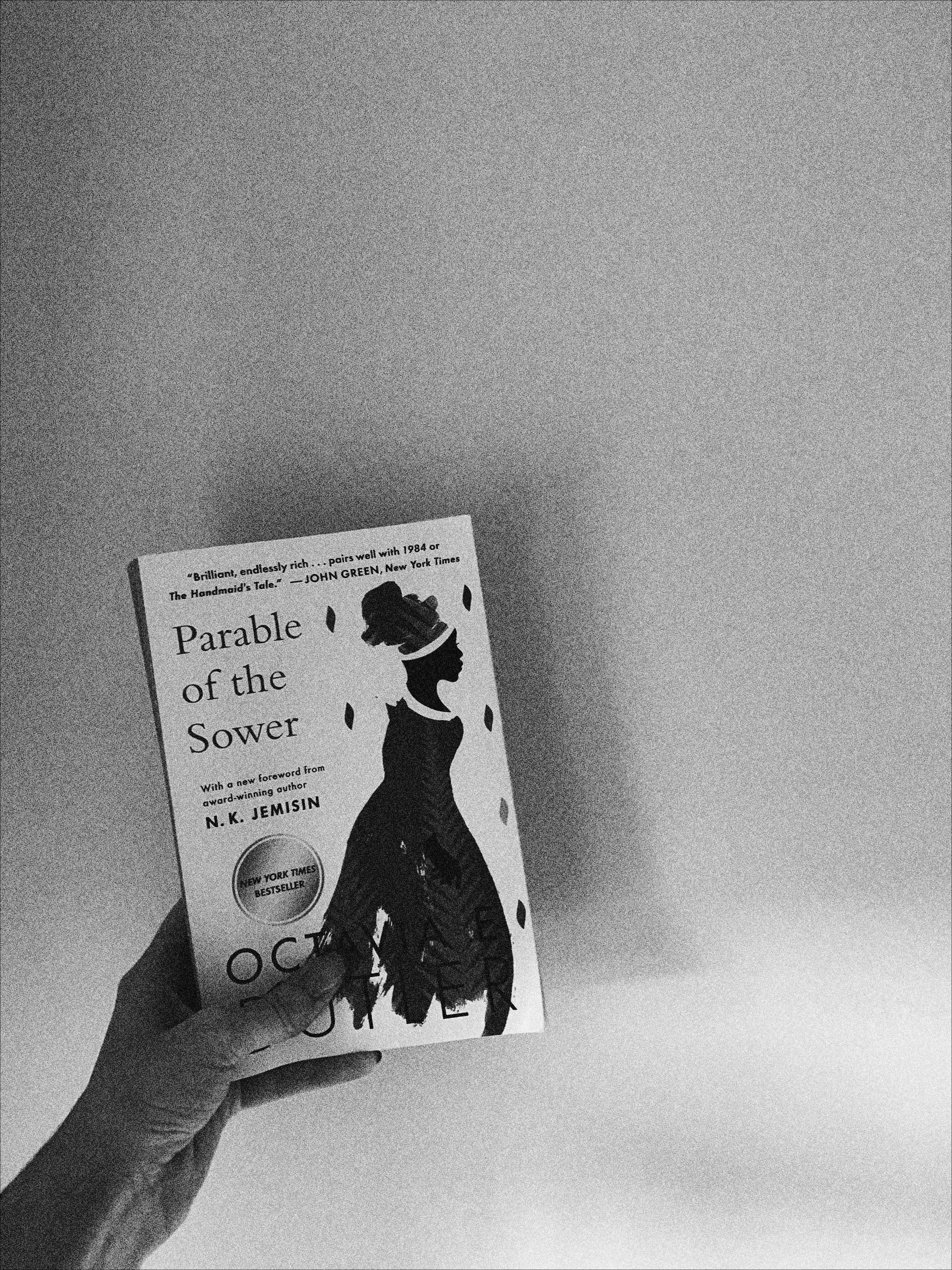by Octavia E. Butler
Grateful, blessed, and favored by God himself to be done with this book. This is why I avoid fiction.
Alas.
Parable of the Sower by Octavia Butler is a science fiction novel set in the future (i.e., 2024; this was written in 1993). It follows a community of families outside Los Angeles trying to survive the failure of capitalism and the fall of society in general. Houses are being torched due to the prominence of Pyro, a drug that makes watching something go up in flames more pleasurable than sex. After Lauren, the protagonist, loses her home, community, and entire family in one of these fires, she joins forces with two others who survived to escape north to Canada. Also, seemingly importantly, because her mother was on a drug related to pyro when she was pregnant with her, Lauren is considered a “sharer”, meaning she has hyperempathy, i.e., can feel others’ physical pain.
In their journey northward, Lauren, Harry, and Zahra collect a handful of others who become allies, one being a man named Bankole. Bankole is Lauren’s father’s age and since her father went missing before the fire destroyed their community, Lauren feels drawn to him. So much so that she hopes this man, 40 years her senior, will marry her after a couple of weeks trudging through hell together. I’m not sure when the line was crossed from “he reminds me of my dad” to “I want to have sex with this man,” but she even uses her precious money on an emergency trip to gather provisions at a convenience store to buy condoms before they even acknowledge they’re more than strangers. Pretty presumptuous, if you ask me! Kim, there are people are dying.
Now, for a book where the back! cover! mentions the whole hyperempathy thing (it’s allegedly that important?), this book is soooo emotionless. Lauren’s dialogue felt so removed from any kind of processing or emotions when that was supposed to be her whole thing: pain. I thought the hyperempathy thing would come in handy maybe at the end of the book — like maybe there’d be a twist where she found a community of sharers OR her secondhand pain would give her and her ragtag crew exclusive insight into how to solve their problems OR maybe one of her attackers would be a sharer and their mutual pain would cancel each others’ out and they’d skip off into the burning flames of society together — but nothing! It was barely even necessary to the plot.
All the while, Lauren, who is a former ~Baptist~, is developing her own religion (cute!). To be fair, as someone who has gone through her own deconstructive era, I get the whole “I gotta figure out what I believe” thing. But to lead your orphaned, widowed, traumatized team of vagabond misfits toward the idea of a vague embryonic religion? That's just taking advantage.
Her religion is called Earthseed, and its whole thing is that God is change. Its manifesto is as follows:
Why is the universe?
To shape God.
Why is God?
To shape the universe.
Throughout the book, she’s continuously writing verses to fit her religion. Admittedly, the concept of “God is change” did have an intellectual draw for me — though I don’t think that God himself is malleable, maybe the context around him is. “God is change” is true in the sense that the human experience, which is (if you believe the bible) made in God’s image, is growing and changing in order to make more room inside ourselves for knowledge of the divine. We shape God by chiseling away at him as we live. Who he is doesn’t change, empirically, but our depth of understanding changes the shape of who we understand him to be.
But I don’t care for the fact that I had to trudge through 329 pages of mud to appreciate that one slice of the book. She kept saying she hadn’t thought it all through yet, but talked about it with such a level of haughtiness that I was constantly rolling my eyes anytime it swung back to her Earthseed pedestal. Extrapolating it is the only way I can say my time was not entirely wasted.
Don’t read this one! Instead, maybe YOU TOO can start your own religion, god-willing. Hopefully it’s not one that elicits as many eye rolls as this one did. Goodbye!

